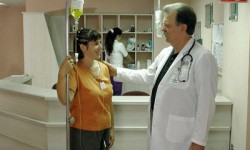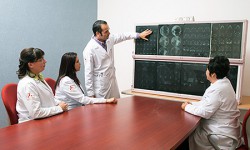
Obesity has become an epidemic in the United States, affecting both children and adults. If you need any more motivation to lose those extra pounds, consider the fact that increasing evidence suggests excess weight creates a risk for developing certain types of cancer.
Cancer and obesity by the numbers
- An estimated two-thirds of Americans can be classified as overweight or obese.
- Combinations of excess weight, poor nutrition and lack of exercise are elements in one out of three cancer deaths.
- Studies show that being overweight or obese is a likely risk for developing at least 13 types of cancer.
Why obesity increases cancer risk
Excess weight has a negative impact on hormone and protein levels as well as the body’s process of cell division and growth. Your immune system can become compromised, reducing its ability to fight cancer and other diseases. A non-toxic cancer vaccine can stimulate your immune system and prompt it to take action against tumors.
What can you do?
The safest and most effective formula for weight loss is decreasing the number of calories taken in while increasing the number of calories burned through physical activity.
- Skip “supersized” portions and get at least half of your calories from fruits and non-starchy vegetables.
- Limit the amount of sugar and processed foods in your diet.
- Get a minimum of 30 minutes of physical activity five times a week.
A non-toxic cancer vaccine is just one of the tools in our innovative Issels® immuno-oncology treatment programs. Contact us for more information about our personalized therapies.





